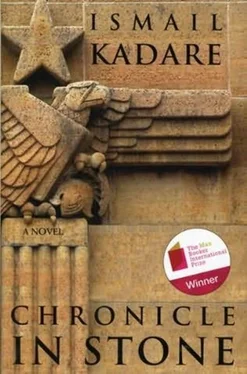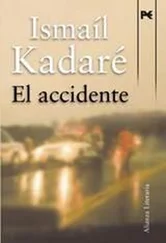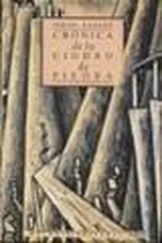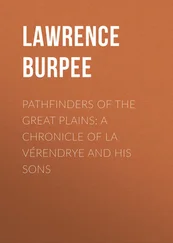Ismaíl Kadaré - Chronicle in Stone
Здесь есть возможность читать онлайн «Ismaíl Kadaré - Chronicle in Stone» весь текст электронной книги совершенно бесплатно (целиком полную версию без сокращений). В некоторых случаях можно слушать аудио, скачать через торрент в формате fb2 и присутствует краткое содержание. Жанр: Современная проза, на английском языке. Описание произведения, (предисловие) а так же отзывы посетителей доступны на портале библиотеки ЛибКат.
- Название:Chronicle in Stone
- Автор:
- Жанр:
- Год:неизвестен
- ISBN:нет данных
- Рейтинг книги:4 / 5. Голосов: 1
-
Избранное:Добавить в избранное
- Отзывы:
-
Ваша оценка:
- 80
- 1
- 2
- 3
- 4
- 5
Chronicle in Stone: краткое содержание, описание и аннотация
Предлагаем к чтению аннотацию, описание, краткое содержание или предисловие (зависит от того, что написал сам автор книги «Chronicle in Stone»). Если вы не нашли необходимую информацию о книге — напишите в комментариях, мы постараемся отыскать её.
Chronicle in Stone — читать онлайн бесплатно полную книгу (весь текст) целиком
Ниже представлен текст книги, разбитый по страницам. Система сохранения места последней прочитанной страницы, позволяет с удобством читать онлайн бесплатно книгу «Chronicle in Stone», без необходимости каждый раз заново искать на чём Вы остановились. Поставьте закладку, и сможете в любой момент перейти на страницу, на которой закончили чтение.
Интервал:
Закладка:
“Have you heard?” asked Kako Pino. “They say we have to block up the chimneys too. The end of the world!”
“Let them close up everything!” shouted Xhexho. “The chimneys and doors, and even the toilets if they want. The world’s gone mad, my good Pino, mad. Everything’s going to the dogs.”
“It’s crazy, all right,” Kako Pino agreed. “Barely one wedding a week. The end of the world!”
“They chase the cows out of the field and cover it with cement. Have you ever seen anything like it, Selfixhe? They say there’s a man called Yusuf, a man with a red beard, Yusuf Stalin his name is, who’s going to smash them all to pieces.”
“Is he a Muslim?” Nazo asked.
Xhexho hesitated a moment, then said confidently, “Yes. A Muslim.”
“That’s a good start,” said Nazo.
They all started talking, Nazo speaking to Grandmother while Xhexho whispered in Maksut’s wife’s ear, as if to ask her something. She shook her head without looking up from the blanket. Xhexho put her hands to her cheeks in despair.
The conversation got more intense. Now they were speaking in pairs, in low and level tones, except for Kako Pino and Nazo’s daughter-in-law.
“Well, that really is the end of the world,” Kako Pino suddenly said, not to anyone in particular. Then she got up and left. Nazo and her daughter-in-law followed.
The whole neighbourhood was worried, that was clear. The way shutters opened and closed, the knocks at doors here and there, the constant howl of the dry wind, and even the way the women hung out the sheets all seemed to pass on the general anxiety.
People couldn’t get used to the draped windows. Some found it ridiculous, most said it was absurd, and still others considered it an ill omen. On the third night Bido Sherifi took down a curtain, but just a few minutes later a harsh, angry voice came up from the street:
“Spegni la luce!”
Two nights later, when the machine-gun at the lookout post fired on the house of the chronicler Xivo Gavo, whose lamp was the last in the city to be extinguished, everyone realised that the oscuramento was no joke. Night after night, an angry eye kept watch, checking every point and all directions. No light ever escaped his attention.
So the city submitted tamely to the blackout. As night fell, the town gradually blurred; streets and roofs wobbled as if suffering vertigo, minarets and chimneys tottered as if suspended in mid-air, then disappeared with everything else. Oscuramento .
The construction project was another topic of daily conversation. The word “aerodrome” was mangled without mercy by the gums and stumps of all the city’s old women and came out so distorted as to be virtually unrecognisable. Yet these r ’s, d ’s and m ’s (grains of sand watered with saliva), even when kneaded together in such comical ways, retained an extraordinary capacity to spread fear.
They were working day and night in the plain, which everyone now called “aerodrome plain”. Thousands of soldiers and hundreds of trucks rolled back and forth all day, doing something that from afar looked like nothing at all. From time to time the noise of the stone-crushers, cement mixers and polishing machines drifted up into the city.
About that time there were a number of robberies in the city. Taking advantage of the blackout, thieves were lifting off slates and getting into houses from the roofs. (Most burglaries in the city had always been done from the roofs.)
Not long after the first break-ins, an unknown aircraft flew over the city. It was so high up that no one would have noticed it had it not been for the unfamiliar, low throbbing noise it made, which came in waves, like an unending roll of thunder. It left a kind of stupefaction in its wake, drifting above us, hanging in the white clouds.
In the days that followed other planes passed overhead too, almost always alone and so high that they seemed intent on showing that they had nothing to do with our city. Whose were they? Where did they come from? Where were they going? What for? The sky was as impenetrable as it was indifferent.
The rooftop break-ins might well have got worse except for the appearance of a new monster: the searchlight. It had crept into the city in complete silence without anyone even suspecting its existence until suddenly, one October night, its one eye, like the eye of a Cyclops, lit up the stony river bed. A long arm of light stretched out like a transparent reptile seeking the city. It seemed pallid in the pit of darkness, but when it hit the first roofs the cone of light brightened and, with cruel clarity, began gliding over the fronts of the houses, which turned white with terror.
The same thing happened on subsequent nights. Every night the searchlight sought out the city in the dark and once it had found it, clutched on to it. Its beam was a jelly-like sea-creature that slithered over neighbourhoods, constantly changing its shape to fit the contours of the streets and houses on which it fell.
Around that time the visits of the aged katenxhikas became predictably more frequent. Unlike the old crones, the katenxhikas were old ladies who often left their houses, especially in times of trouble. They were different in other ways as well. They still complained about their daughters-in-law, for example, whereas the daughters-in-law of the old crones had long since left this world. The katenxhikas also complained of rheumatism, gout and various other illnesses, whereas the old crones suffered only the noble disability of blindness, about which they never complained. In short, the katenxhikas were nothing like the crones.
As usually happened after strange events, the katenxhikas poured through the streets and alleyways. In Citadel Street and Old Market Street, Upper and Lower Palorto, in the town square and on the Bridge of Brawls, in Dashu Square, in the gallery of the Christian Pasha, below the Citadel, over the Owls’ Valley, on Chain Square, in alleys with no name, they walked and walked in the sparse rain, wrapped in their black shawls, going down Varosh Street and back up Dunavat, hunched up, out of breath, and full of gossip.
A cold, dry wind blew steadily down from the mountain passes to the north. I listened to its uniform howl, and for some reason the expression “words are gone with the wind” went round and round in my head. Something strange was happening to me lately. Everyday words or expressions, things I had heard dozens of times, were suddenly taking on new meanings in my mind. The words were casting off their usual idiomatic sense. Expressions made up of two or three words would painfully fall apart. If I heard someone say, “My head is boiling,” despite myself I couldn’t help imagining a head boiling like a pot of beans. Words had a certain force in their normal state. But now, as they began to shear and crack up, they acquired amazing energy. I was afraid they would explode. I did all I could to stop it, but in vain. Chaos reigned in my head as words, devoid of logic and reality, abandoned themselves to their danse macabre . Common oaths like “You can eat your own head!” tormented me most of all. The horrific vision of someone holding his head in his hands and devouring it was compounded by the trouble I had understanding how anyone could eat his own head when everyone knows that you eat with your teeth and teeth are in the head, whether it be cursed or not.
Ordinary speech, once serene and reassuring, had been shaken as by an earthquake. Everything was upside down, falling apart, breaking up.
I had entered the kingdom of words, where a merciless tyranny reigned. The world was suddenly filled with people who had pumpkins for heads. Others had heads that spun and eyes that threw knives. Some had blood that froze like ice, others wandered about with forked tongues, gold fingers or iron fists. A slab of flesh pierced by two eyes would pop up here or there. The city itself was feverish (I had seen the window panes shiver, and had even seen their greyish sweat). Someone was walking around on his unearthed roots. Others, like madmen, asked idiotic questions: “Where are your ears? Where are your eyes?” Someone was trying to devour someone else not with his teeth but with his eyes. Unknown painters were blackening the door of a house or the fate of some young girl (where did these painters come from, I wondered, and why were they doing this, and anyway why did people care so much whether their destiny was painted black or white?). And, one fine day, a young man was smitten by love’s arrow. The world was falling apart before my very eyes. Surely that was what Kako Pino meant when she said, as she never stopped saying, “It’s the end of the world.”
Читать дальшеИнтервал:
Закладка:
Похожие книги на «Chronicle in Stone»
Представляем Вашему вниманию похожие книги на «Chronicle in Stone» списком для выбора. Мы отобрали схожую по названию и смыслу литературу в надежде предоставить читателям больше вариантов отыскать новые, интересные, ещё непрочитанные произведения.
Обсуждение, отзывы о книге «Chronicle in Stone» и просто собственные мнения читателей. Оставьте ваши комментарии, напишите, что Вы думаете о произведении, его смысле или главных героях. Укажите что конкретно понравилось, а что нет, и почему Вы так считаете.












